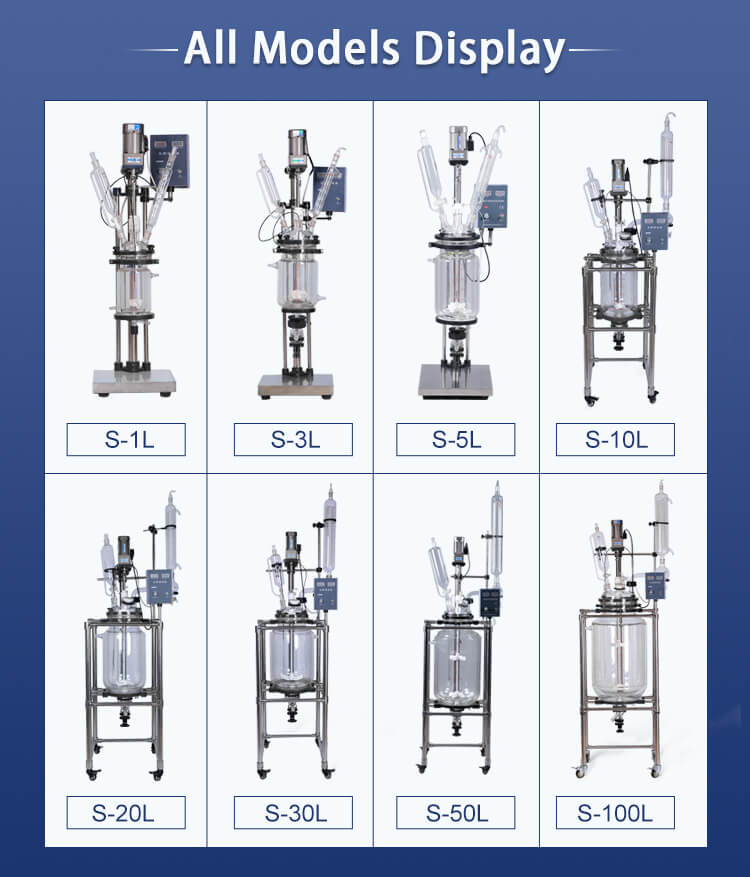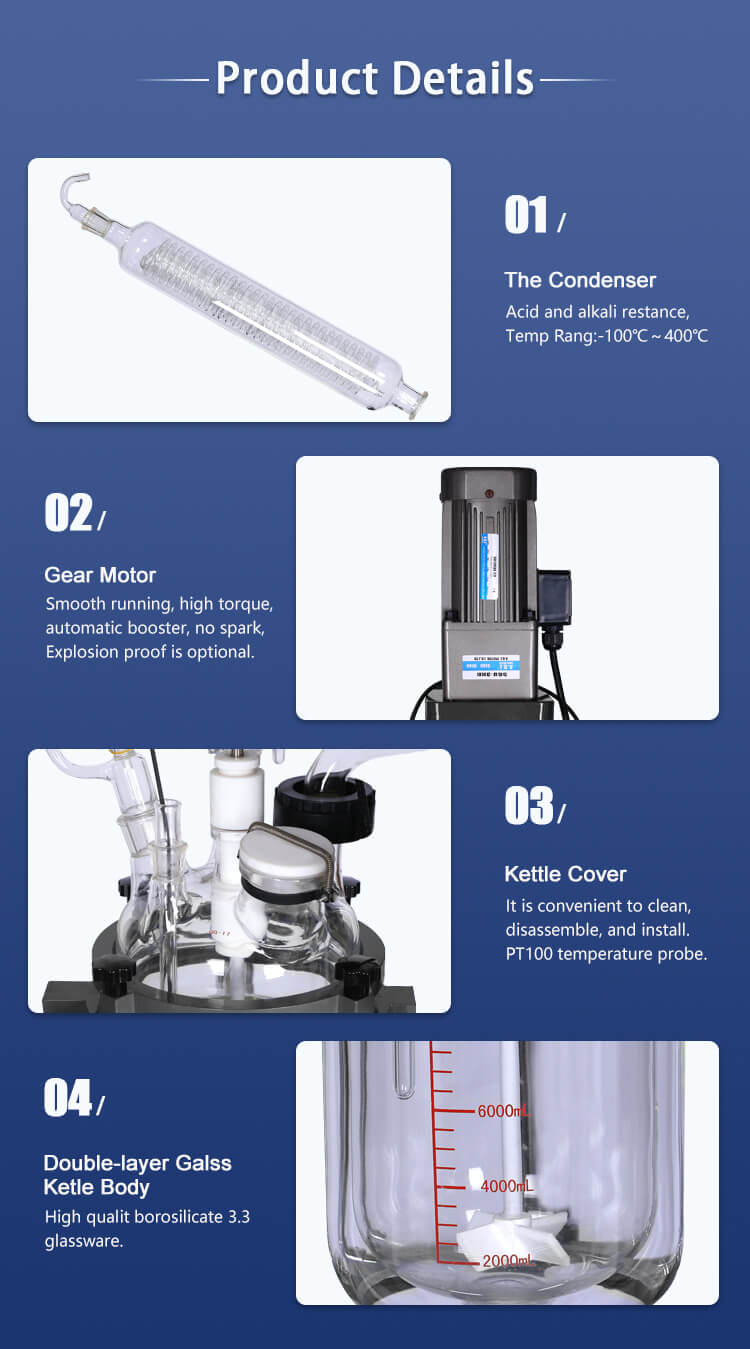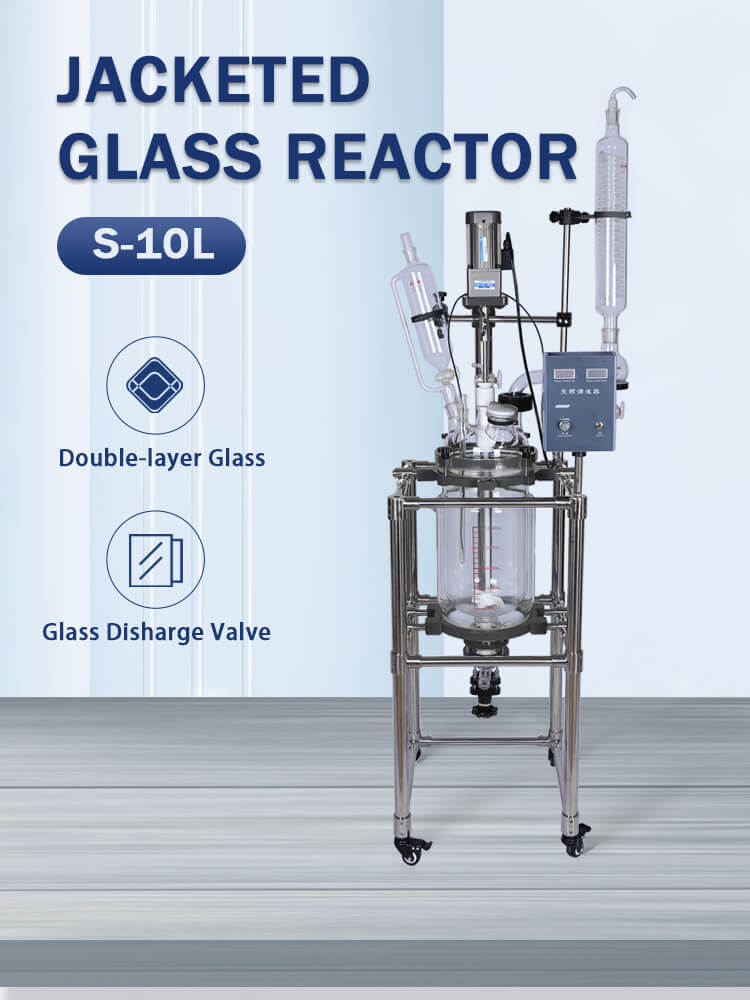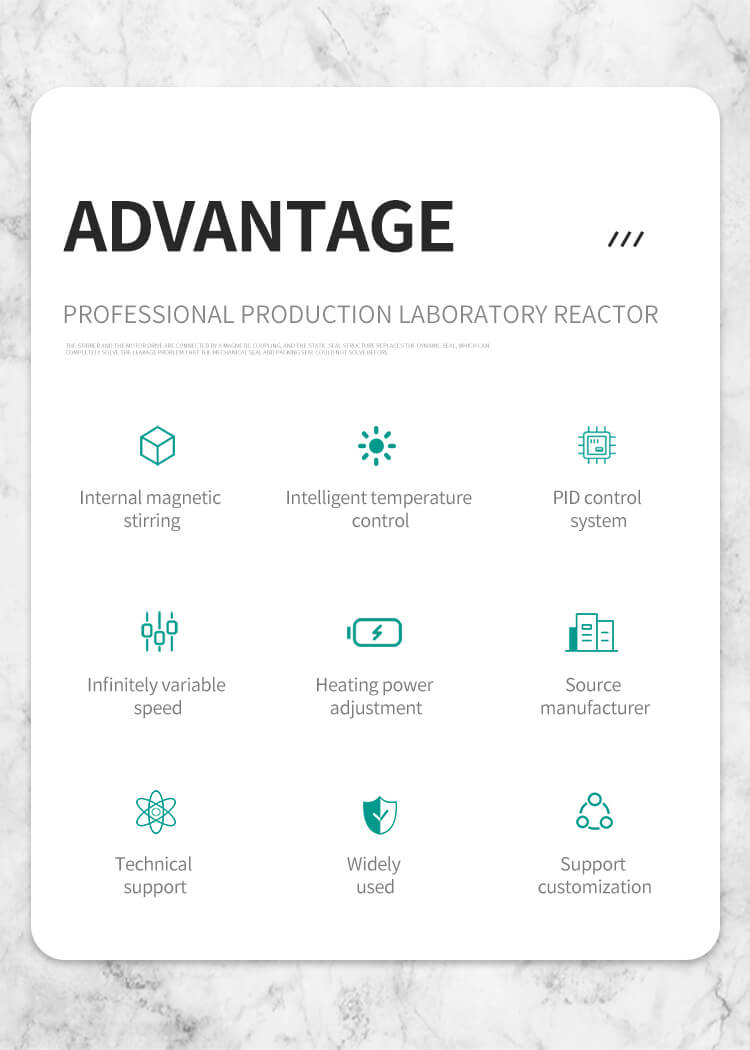Chemical reactors play a crucial role in various scientific and industrial processes, enabling chemists and researchers to analyze and produce different substances. One of the most fascinating advancements in this field is the glass chemical reactor.

Designed to meet the demands of modern laboratories and research facilities, the glass chemical reactor offers a unique set of advantages. Its innovative design and materials utilized revolutionize the way chemists conduct experiments and optimize chemical reactions.
Characterized by its transparent cylindrical body made of high-quality borosilicate glass, the glass chemical reactor allows researchers to observe the ongoing reaction visually. This real-time visualization significantly enhances the understanding and control of the reaction process, making it an invaluable asset in various scientific domains.

One of the key advantages of the glass chemical reactor is its exceptional resistance to thermal shock. Borosilicate glass, known for its excellent thermal properties, can withstand rapid temperature changes without shattering. This feature ensures the reactor's durability and enables experiments requiring extreme temperature shifts.
Another noteworthy attribute of the glass chemical reactor is its superior chemical inertness. The borosilicate glass used in its construction is resistant to most chemicals, preventing any unwanted reactions and ensuring the purity of the substances being studied or produced. This characteristic makes it an ideal choice for handling corrosive materials and volatile substances.
The glass chemical reactor also offers excellent scalability, accommodating varying volumes of reactants as needed. From small-scale laboratory experiments to larger industrial applications, the reactor design allows for seamless upscaling without compromising the reaction's efficiency or compromising safety.
Furthermore, the glass chemical reactor provides enhanced safety features. Its transparent body enables researchers to monitor any potential leaks or reactions more easily, ensuring a safer work environment. Additionally, the reactor's design allows for efficient and controlled heat transfer, minimizing the risk of thermal accidents during experiments.

In conclusion, the glass chemical reactor represents a significant advancement in the field of chemistry and laboratory research. Its transparent design, thermal shock resistance, chemical inertness, scalability, and enhanced safety features make it an indispensable tool for scientists and researchers worldwide. With its ability to optimize chemical reactions and facilitate observation, the glass chemical reactor is propelling innovation and discovery in various scientific disciplines.






